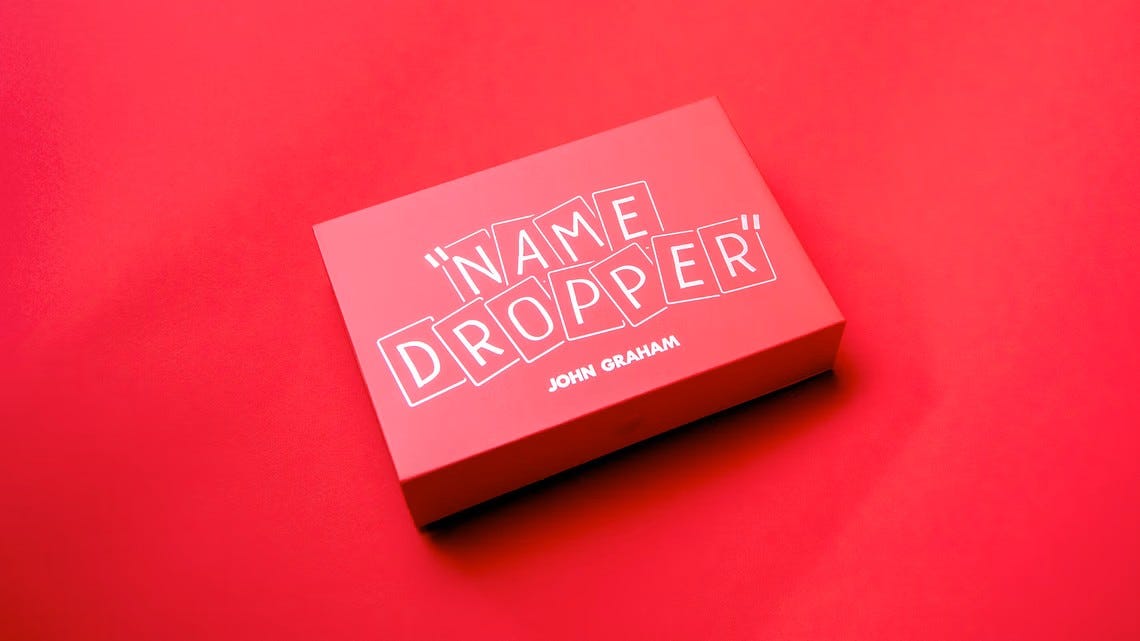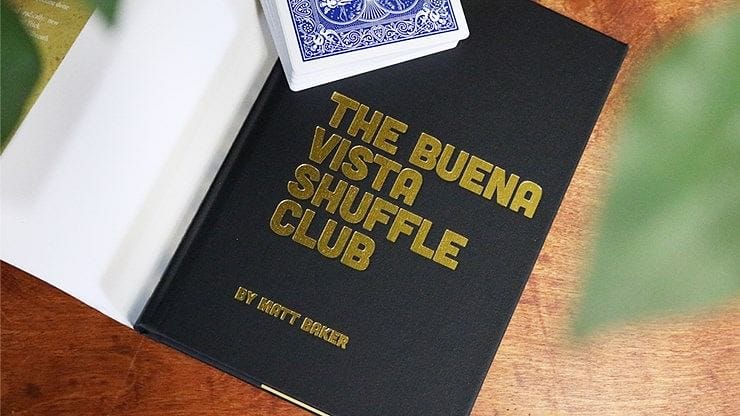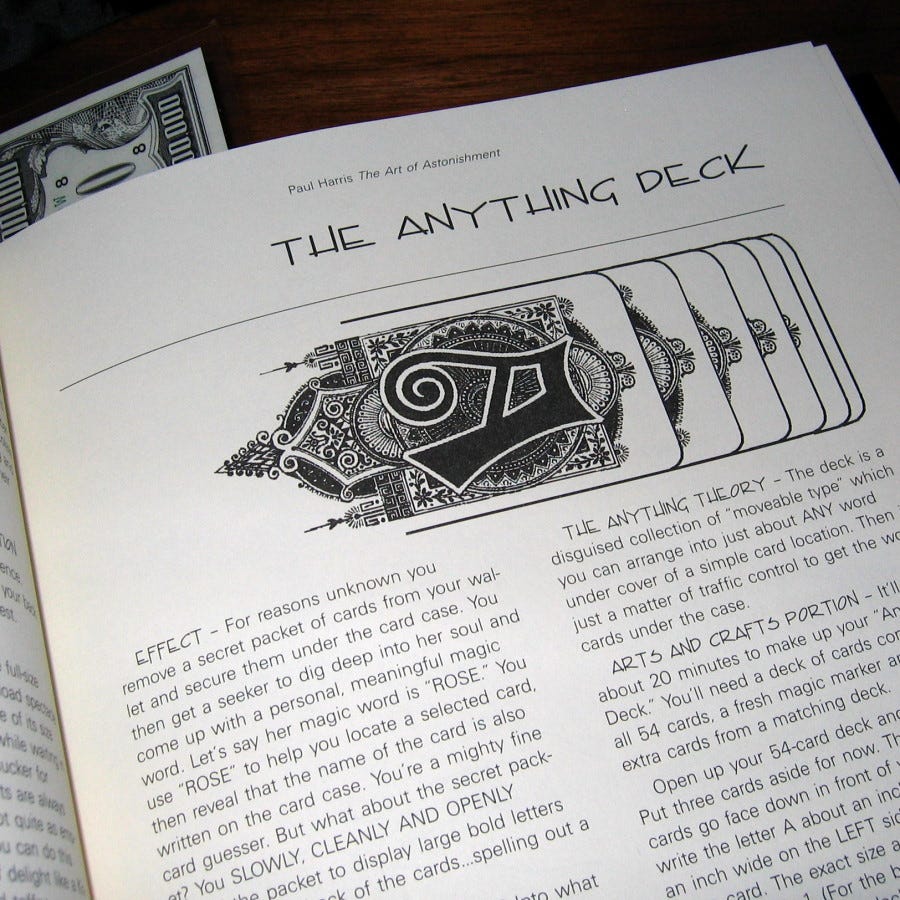This issue of The Erudite Magic Digest is all about working on one effect until you get it right. We’ve touched on this topic in previous issues, but in this one, we’re going to look at several versions of one effect and trace their lineage and differences, then explain why this particular effect hits hard. Finally, I’ll share some tips I’ve discovered to help your magic and mentalism hit harder.
Inspiration Corner
“Sometimes magic is just someone spending more time on something than anyone else might reasonably expect.” —Teller
It’s only fitting that we have a quote from the incomparable Teller - one that has resonated with me for a long time. It’s absolutely true that many great magic secrets have come about due to magicians spending inordinate hours working on a specific secret.
In fact, I’m always inspired by the spirit in which magicians offer up one of their prized creations to the magic community - something they may have spent years creating. And then, all of us as students of magic study it, figure out if it works for us, and go to work fixing the pieces that don’t.
That’s the story of the trick I want to talk about in today’s issue: a trick that was published in 1996, iterated many times, and republished as different versions and variations in the magic literature.
Name Dropper
Last week, Vanishing Inc. (my employer) released “Name Dropper” by John Graham. This is a fantastic trick, and I wanted to take a moment to explore its history. While many magicians recognize that this effect is based on “The Anything Deck” by Paul Harris - found in The Art of Astonishment 3 (p. 23) - fewer realize that similar versions have existed for nearly a century, with one dating back to 1934.
If you’re unfamiliar with the effect, here’s the basic premise: During a pick-a-card trick, a participant thinks of a word, which is then revealed as a prediction on the backs of a packet of cards that have been on the table the entire time. It’s easy to see why this concept has captivated so many magicians over the years.
John Graham freely acknowledges that Paul Harris’s “The Anything Deck” (and later “Deep Astonishment” 1-X) was his inspiration. However, this “predicted word on the back or face of a packet of cards” concept has evolved through multiple variations in magic literature. If you’d like to explore the lineage of this effect in your own library, here are some key references:
Name Dropper – The trick itself was originally taught in Stage by Stage (2021, p. 9). The version released by Vanishing Inc. is the same, but pre-made and ready to go. If you prefer DIY magic, you can craft it yourself with minimal effort.
Say Anything – Matt Baker’s take on the concept, inspired by Paul Harris, appears in The Buena Vista Shuffle Club (2019, p. 101). Here, the prediction appears on the faces of blank cards inside an envelope in your wallet. What sets this version apart is that the participant never says their chosen word or name out loud.
The Anything Deck – First published in The Art of Astonishment 3 (1996, p. 23), this is the foundational write-up of the predicted “spell-a-word” effect. It was later released as an individual trick through various “Deep Astonishment” iterations. Many of the creators above experimented with both this and “Deep Astonishment” before refining their own takes.
Tea Table Telepathy – A lesser-known predecessor to this effect comes from Al Baker’s prolific mind. Originally released as a standalone trick in 1934, it was later reprinted in The Secret Ways of Al Baker (2003; p. 582). It’s done with tarot cards, not playing cards. Interestingly, a footnote in that book suggests that Paul Harris was unaware of Baker’s version when he developed “The Anything Deck.” Just another example of how old ideas often resurface in new and exciting ways.
Why Does This Effect Hit Harder Than a Typical Card Trick?
What makes this type of effect so powerful? I believe it’s because it transforms a card trick into a piece of mentalism - revealing a deeply personal thought rather than simply identifying a chosen card. Yes, playing cards are involved, but the focus shifts entirely away from them.
A close friend of mine has been researching the intersection of probability and impossibility, examining how those concepts shape audience perception of magic. As I’ve observed his work, I’ve been reflecting on how to make my own performances feel more impossible, and I think “Name Dropper/The Anything Deck” is a great example of how to go about this.
Within the framework of a standard card trick, the audience can often attribute the outcome to sleight of hand. But when you reveal a freely thought-of word, a childhood friend’s name, or another deeply personal detail - something with an astronomical number of possibilities - their mind struggles to rationalize how you could possibly know it. This taps into something primal: the belief that no one can read your thoughts unless you give them away through speech or body language.
This shift - from a standard card trick to something truly inexplicable - is what makes effects like “Name Dropper” so impactful. But you don’t need a specialized trick to achieve this level of astonishment. With the right techniques and psychological framing, you can make any piece of magic feel just as impossible. Here are a few ideas to help you amplify the impact of your performances…
Making Your Magic More Impossible
If you want your magic to resonate on a deeper level - like “Name Dropper” does - you need to go beyond method and focus on how your audience perceives the effect. Here are a few principles to help transform your existing repertoire into something that feels truly impossible, along with some specific tricks that showcase these ideas:
Keep reading with a 7-day free trial
Subscribe to The Erudite Magic Digest to keep reading this post and get 7 days of free access to the full post archives.







